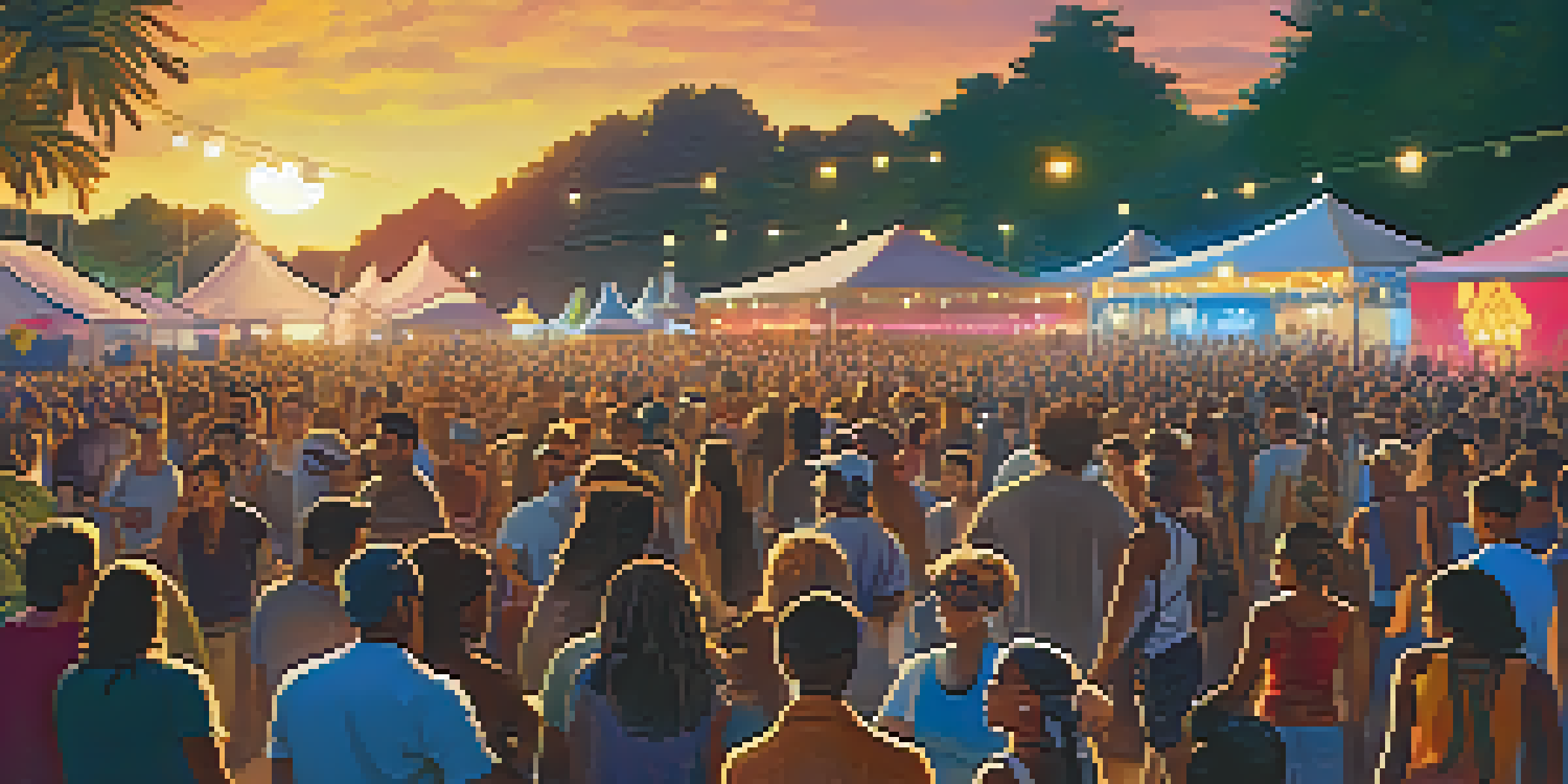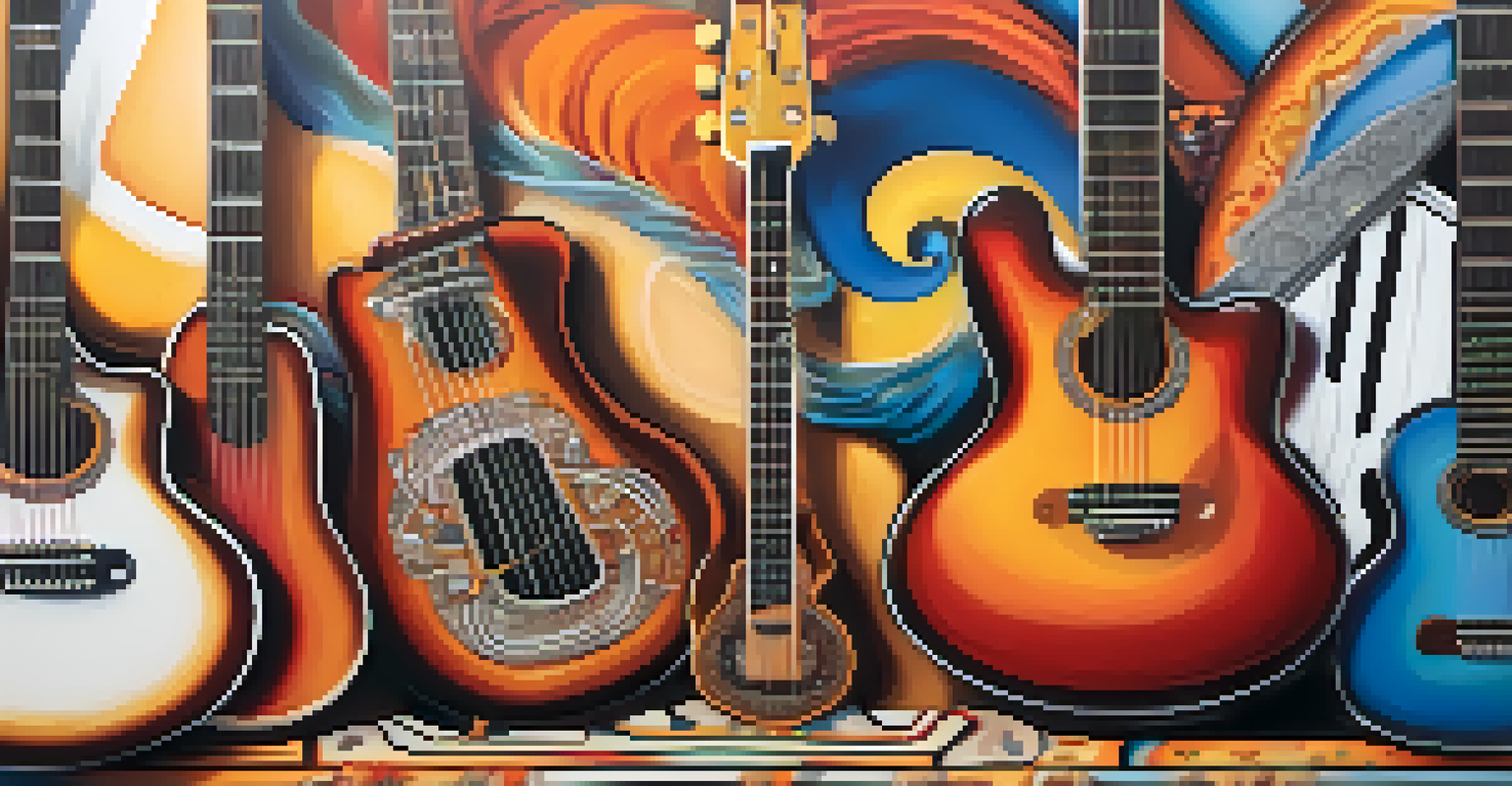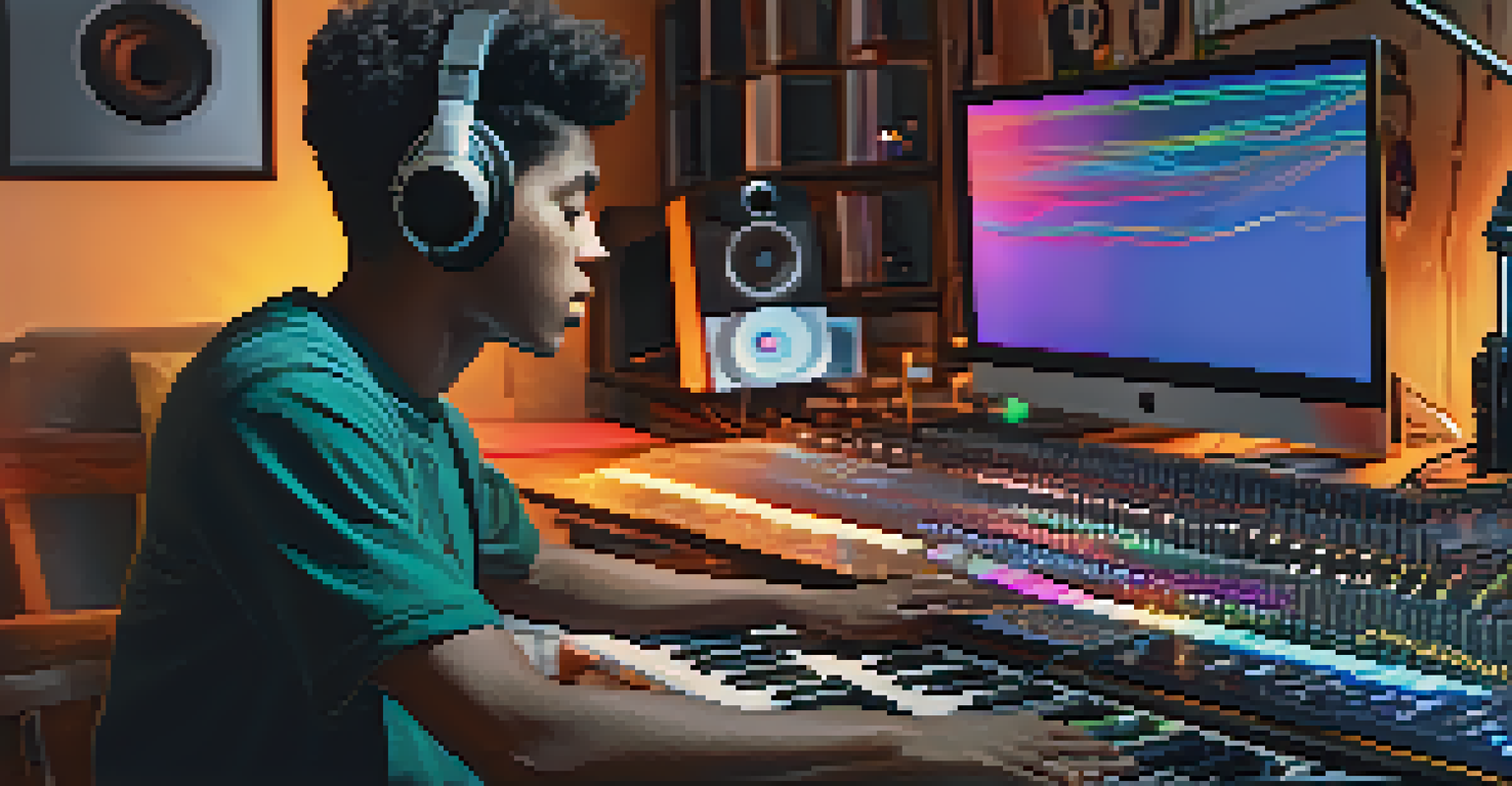The Evolution of Music Styles in a Globalized World

Globalization: The Catalyst for Musical Change
Globalization has profoundly impacted how music is created and consumed. With the internet connecting artists and audiences across continents, cultural exchange is happening at an unprecedented pace. This interconnectedness allows for the blending of musical styles, resulting in unique genres that reflect diverse influences.
Music is the universal language of mankind.
For example, genres like Reggaeton and K-Pop showcase how artists from different backgrounds can collaborate and create music that resonates globally. The accessibility of digital platforms means that a song produced in one corner of the world can quickly gain popularity in another, breaking geographical barriers.
Ultimately, globalization not only enriches music with varied sounds but also encourages a sense of unity among listeners, who can appreciate a wider array of cultural expressions.
The Rise of Hybrid Genres and Their Appeal
As artists increasingly experiment with different styles, hybrid genres have emerged, captivating fans worldwide. These genres combine elements from traditional music forms with contemporary sounds, creating something fresh and exciting. Consider the fusion of country and hip-hop seen in the works of artists like Lil Nas X, which has opened new avenues for musical exploration.

This blending process often reflects the artist's personal journey and cultural background, making the music more relatable and authentic to a diverse audience. Listeners are drawn to these hybrid genres not just for their catchy tunes, but for the stories and cultural narratives they convey.
Globalization Enhances Musical Diversity
Globalization facilitates cultural exchange, allowing diverse musical styles to blend and create unique genres that resonate across borders.
In essence, hybrid genres exemplify how globalization fosters creativity, allowing artists to push boundaries and redefine what music can be.
Technology's Role in Music Evolution
Technological advancements have revolutionized how music is produced, shared, and consumed. From digital audio workstations to social media platforms, technology has democratized music-making, enabling anyone with a computer to create and distribute their work. This shift has led to an explosion of independent artists who might not have had a chance in the traditional music industry.
The power of music makes all the difference in the world.
Streaming services like Spotify and Apple Music allow listeners to access a wealth of music from around the world at their fingertips. This accessibility not only broadens listener tastes but also gives artists from diverse backgrounds a platform to showcase their talents, regardless of their geographical location.
As technology continues to evolve, it promises to further shape the music landscape, making it more inclusive and diverse.
Cultural Appropriation vs. Cultural Appreciation
As music styles evolve through globalization, the lines between cultural appropriation and cultural appreciation can sometimes blur. Cultural appropriation occurs when elements of one culture are used without understanding or respect, often leading to controversy. For instance, when mainstream artists adopt traditional sounds or styles without acknowledging their origins, it can create tension within the cultural community.
On the other hand, cultural appreciation fosters respect and understanding, highlighting the beauty of diversity in music. Artists who collaborate with musicians from different backgrounds can create a dialogue that celebrates their influences while honoring their roots.
Tech Revolutionizes Music Access
Technological advancements have democratized music production and distribution, enabling independent artists to reach audiences globally.
Navigating this delicate balance is essential for artists to ensure that their work is not only innovative but also respectful of the cultures they draw from.
The Influence of Social Media on Music Trends
Social media has become a powerful tool for promoting music and shaping trends in today's digital landscape. Platforms like TikTok have given rise to viral songs, often propelling lesser-known artists into the limelight overnight. This phenomenon highlights how quickly music can spread and how audience engagement can drive an artist's success.
Moreover, social media allows fans to connect directly with their favorite artists, fostering a sense of community and loyalty. Through live streams, Q&A sessions, and behind-the-scenes content, artists can share their creative process and build a personal connection with their audience.
As a result, social media not only influences what music is trending but also creates a platform for diverse voices to be heard and appreciated.
Music Festivals: A Celebration of Diversity
Music festivals have evolved into vibrant celebrations of cultural diversity, attracting attendees from all walks of life. These events often feature a mix of genres, showcasing local and international talent and creating an inclusive atmosphere. Festivals like Coachella and Glastonbury serve as melting pots where different musical styles intersect, allowing attendees to experience a wide range of sounds.
Attending a music festival can be akin to taking a global journey through music, as you encounter artists and genres you may not have heard otherwise. This immersion fosters appreciation for various cultures and their musical traditions, enriching the overall experience.
Social Media Drives Music Trends
Social media platforms have transformed how music is promoted, allowing for rapid trend shifts and deeper connections between artists and fans.
In many ways, music festivals symbolize the unifying power of music in a globalized world, where people come together to celebrate their shared love for sound.
The Future of Music in a Globalized Society
Looking ahead, the future of music in a globalized world appears promising yet complex. As artists continue to innovate and experiment, we can expect even more hybrid genres and cross-cultural collaborations. The ongoing evolution will likely reflect the changing dynamics of society, where technology, cultural exchange, and social issues intertwine.
Moreover, as listeners become more engaged and vocal about their preferences, the music industry may adapt to cater to diverse tastes and needs. This responsiveness could lead to a richer musical landscape, where authenticity and creativity are celebrated.

Ultimately, the future of music will be shaped by the very forces that have driven its evolution thus far—globalization, technology, and the shared human experience of connecting through sound.